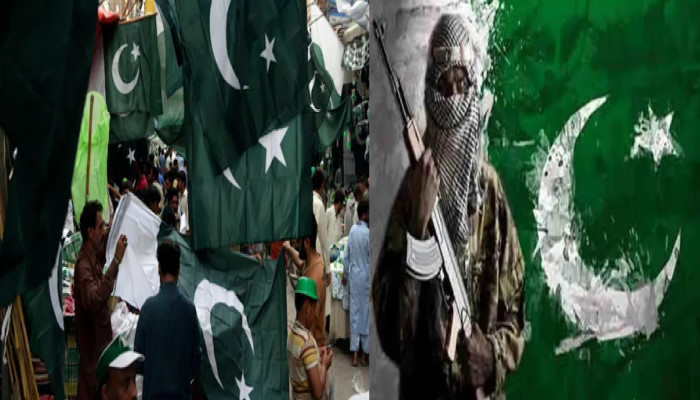
Over the past couple of decades, Pakistan has steadily lost favours it once enjoyed with key allies, including the US, for its incessant instrumentalization of terrorism as state policy. As the post 9/11 world increasingly adopted global norms on no tolerance for terrorism, Pakistan remained stuck in its tactics of viewing militant networks as strategic assets, particularly deployed against India. Embarrassingly exposed time and again, the country currently finds itself amid multiple crises at once, from a precarious economic state to existentially threatening insurgencies, all exacerbated by a severely weakened global standing. This was laid bare during its recent hostilities with India, following the blood-curdling Pahalgam attack of April 22, as countries that have traditionally aligned with Pakistan refused to come to its aid.

Pakistan’s role in the proliferation of global terrorism began with its alliance with the CIA in arming the Afghan Mujahideen against the USSR in the 1980s. However, this policy of using militant proxies for geopolitical ends was soon institutionalized by the Pakistani establishment which then deployed the same tactics to undermine India, and specifically stir up Islamist militancy in Kashmir. Even as it projected itself as a US ally in the global war on terror, it continued to shelter and support radical elements, reflected in its infamous distinction between ‘good Taliban’ and ‘bad Taliban’. The primary reason why it covertly backed the Afghan Taliban was again as to secure an allied Islamist regime in Afghanistan as a counter to India. This could not be concealed for long and the US, frustrated by Pakistan’s duplicitous designs, significantly cut down on its economic and military aid to the country, in addition to distancing itself diplomatically.
On the other hand, the continuous terrorist attacks in India, evidentially linked to Pakistan, such as the 2001 Parliament attack, 2008 Mumbai attacks, 2019 Pulwama attack, among others, tarnished the latter’s global reputation as the epicentre of terrorism. In recent years, even Muslim majority nations such as the Persian Gulf countries, particularly Saudi Arabia and UAE, have shifted their foreign policy rationale from religion and ideology-based alignment with Pakistan to a more forward-looking cooperation based on the imperatives of economic pragmatism, regional stability and security, and the emerging new world order, with India.

Similarly, the Organization of Islamic Countries (OIC) has, in the past few years, demonstrated its respect and willingness to engage with India, much to the distaste of Pakistan. The first and quite heavy blow came when the forum invited India’s then Foreign Minister Sushma Swaraj as a ‘guest of honour’ in its 2019 meeting in Abu Dhabi, despite Pakistan’s objections. The next year, in a departure from its usual stance, the OIC declined to have Kashmir on its agenda, reflecting Pakistan’s deteriorating standing in the forum and India’s increasing global clout. Although amid the recent military escalations between the two neighbours in the wake of the Pahalgam terror attack, the OIC appears to have favoured Pakistan’s narrative on Kashmir, inciting censure from India, it remains questionable how long it is going to last, given Pakistan’s free-falling economic, security and diplomatic situation as well as the organisation’s history of snubbing the country’s requests more often than not.
Destabilizing Pakistan’s strategic calculus and exacerbating its internal crisis is its once intimate ally- the Afghan Taliban. Since returning to power in August 2021, an event that was looked at with much optimism and triumph in Islamabad, the Afghan Taliban have turned sour with their neighbour that accuses them of supporting the Tehreek-e-Taliban Pakistan (TTP) or the Pakistani Taliban. The TTP has recently emerged as the most potent insurgent group within the country, in addition to the Baloch Liberation Army (BLA), launching relentless attacks on security forces and civilians, and increasingly establishing proto-state pockets in Pakistani territory. The loss of the Afghan Taliban as a reliable ally against India despite years of covert and risk-laden backing certainly constitutes an existential setback for Pakistan, made worse by the growing engagement between the Afghan Taliban and India.
The decades of Pakistan’s instrumentalization of terror have left it in a position that it itself finds difficult to get out of. Not only has the sponsorship of terrorism backfired on its own people as it ranks 2nd in the Global Terrorism Index 2025, but the years of neglect of its internal issues has bred insurgencies that have attacked even Chinese workers and projects, jeopardizing its most strategic partnership. As Pakistan suffers from alarming inflation, dropping currency and foreign exchange reserves, and dependence on IMF bailouts and bilateral loans, its internal security crises have not only weakened it politically but also economically by staving off any potential investment.
Therefore, in order to prevent its own unravelling, Pakistan must take stock of the shifting geopolitical landscape wherein nations prioritize stability, economic cooperation, and counter-terrorism over religious or ideological affiliations. Its continued backing of terror has already cost it irreparably, both internally and externally. Unless it radically recalibrates its geopolitical strategy, one that has no space for militant proxies, the future seems grim for the country.